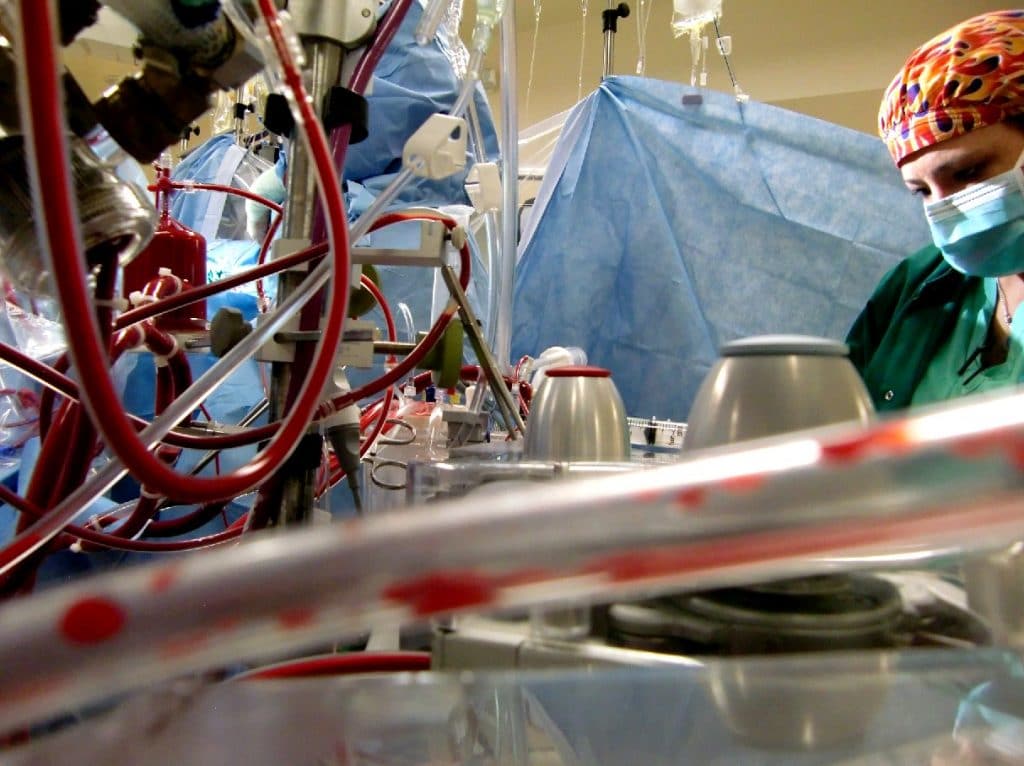Transfusion Use and Hemoglobin Levels by Blood Conservation Method Post Cardiopulmonary Bypass

Background
Guidelines recommend modified ultrafiltration (MUF) and cell washing for blood conservation post cardiopulmonary bypass (CPB), although information regarding outcomes is lacking. This research compared Online-MUF (ultrafiltration of the patient’s entire circulating volume) to Offline-MUF (ultrafiltration of the residual CPB-volume) and centrifugation (cell washing of the residual CPB-volume).
Methods
This prospective cohort study enrolled 99 consecutive patients, grouped by method (Group I = Online-MUF, n = 35; Group II, Offline-MUF, n = 30; Group III, centrifugation, n = 34). Primary outcome was transfusion by 18-hours. Secondary outcomes were 18-hour hemoglobin levels, fluid balance (weight change), and biomarker levels indicating coagulation and organ function.
Results
By 18-hours, 22.9%, 6.7% and 14.7% of Group I, II, and III patients had been transfused, respectively (p = 0.19). Percentage weight gain differed by group (Group I: 5.7%, Group II: 1.3%, Group III: 4.5%; p < 0.0001). Baseline-to-18-hour hemoglobin change also differed by group, with Group I’s increase significantly exceeding that of Group II (p = 0.002) but not differing from Group III (p = 0.36). After adjustment for EuroSCORE, weight gain, and transfusion, only the Group II/III difference remained significant (p = 0.002).
Conclusions
Online-MUF does not appear to offer a reduction in blood transfusion over other methods. Although Online-MUF patients have greater improvement in baseline-to-18-hour hemoglobin compared to Offline-MUF patients, this benefit appears attributable to fluid shifting. Offline-MUF was associated with least frequent transfusions. Although Online-MUF does not appear to reduce blood transfusion, larger prospective randomized controlled studies are required for confirmation.
